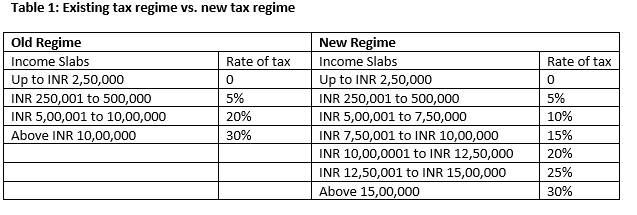Proactive steps to help employees do financial planning

Finance Minister Nirmala Sitharaman presented the Union Budget 2020 on February 1, 2020 in the parliament. There were many expectations from the budget as this was the first budget after BJP led government came to power for the second term in general elections in 2019. The budget proposed new tax scheme with 6 different slabs for individual tax payers as compared to 3 slab scheme currently applicable. The option is given to the individual to decide which scheme of tax, either the old one or the new, is beneficial for him. However, given this liberty comes a daunting task for the Human Resource (HR) department of different business organization.
The process of payroll function will need to be tweaked to accommodate the choice of the individual employee who wishes to opt for new scheme of taxation. As onus is on the employer to deduct Tax deducted at Source (TDS) before making payment of salary to the employees, the declaration of the employee opting for new scheme would need to be taken in the first month of FY 2020-2021 i.e., April 2020. Further, this declaration of choosing between old and new scheme would have to be taken each year. Human resource team would need to arrange quick workshops for their employees to make them understand the new structure and help them make a choice which would be financially beneficial for them. The HR team could also help the employees by providing comparative tax liability calculation as per old scheme and new scheme on the basis of current declarations.
Under the new scheme, the taxpayer will have to forego many of the exemptions and deductions that were available in the older system to avail the benefit of lower tax rates. Table 1 below gives comparative tax structure applicable to employees under new and old scheme. The surcharge and cess on tax would be applicable at existing rates. The individual also needs to do his tax planning well in advance to make declaration with his employer.

The exemptions and deductions that would not be available to the employee under new tax regime are house rent allowance, leave travel concession for domestic travel once in a block of two years, standard deduction from salaries, professional tax, interest on borrowed capital for buying house property, deductions from Gross Total Income under chapter VI A on account of investments made in tax saving instruments like PPF, EPF, life insurance premium, and many more. HR department have to be mindful that the employee can change this option every year if he/she does not have income from business or profession.
Action Points for the HR team:
- Arrange an expert talk for the employees to understand the new tax regime vs. old tax regime
- Arrange training session for the HR and accounts department’s employees that deal with tax computations for individuals as well as deal with corporate taxes
- Connect with the information technology payroll software provider to make changes to the payroll software to take care of the changes as per the budget 2020
- Provide comparative tax liability calculation as per old scheme and new scheme to every employee, if possible
If organizations began early, they can effectively engage with the employees in their financial planning and avoid last minute hassles to comply with the new regulations.












